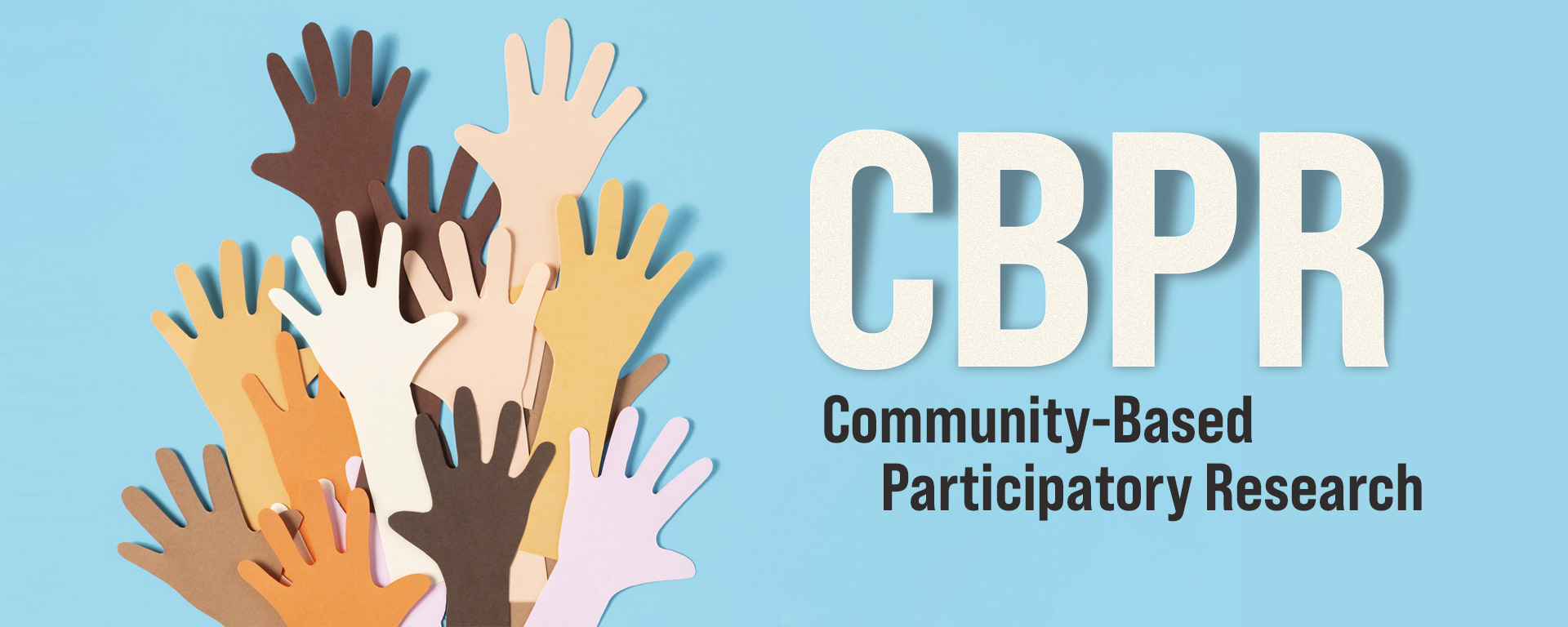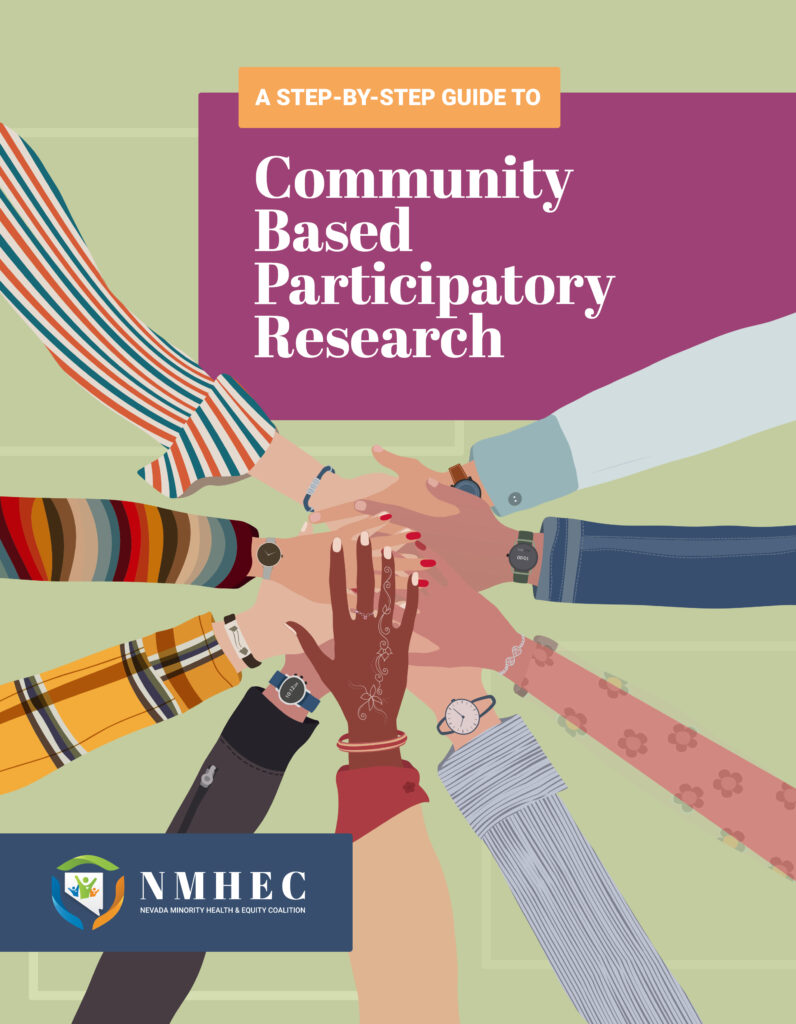
What is CBPR?
Community-based participatory research (CBPR) is a collaborative and equitable approach to research that is carried out in partnership between researchers and the community.(1) In CBPR, both the researchers and the community have an equal share of power, decision-making, and responsibility of the research being done. Additionally, all partners are actively engaged throughout the entire research process, which includes study design, implementation, analysis, interpretation, and communication of results. (1–3)
The aim of a CBPR approach is to increase knowledge and understanding about particular issues, and then integrate the new knowledge in interventions, programs, or policies that benefit a community. It is important to note CBPR is an approach, not a specific research method or design.
CBPR to Foster Health Equity
Ultimately, NMHEC aims for every Nevadan to have the fair opportunity to achieve their fullest health potential without limitations or barriers, otherwise known as health equity. (4) Unfortunately, many people today are not provided the opportunity to achieve their fullest health potential due to various limitations and barriers built into existing social and political structures. These structures are known as the social determinants of health (SDOH),(5) which often impact communities that are historically under-resourced, misrepresented, marginalized, and stigmatized.
With the ever-increasing diverse population in Nevada, NMHEC is committed to identifying gaps in health equity and working towards closing those gaps. One of the goals of the coalition is to use research to better understand the causes of disparities and the most effective approaches to eliminate health disparities. NMHEC commits to using CBPR in our research endeavors as we recognize the value and expertise community partners bring to research. Together we can work to address problems important to our communities while advancing science to address persistent and often preventable health disparities.
NMHEC’s CBPR Principles for Health Equity:
Value the Community.
- Recognize and respect the unique identities of each community
- Create space for dialogue
- Actively listen
- Address issues that are priority to the community
Engage the Community.
- Form genuine connections and partnerships
- Build trust
- Provide information that is relatable, relevant, and culturally sensitive
Empower the Community.
- Build upon strengths of the community
- Expand resources and services for the community
- Provide a platform for community voices and decisions
- Work with community organizations
To learn more about implementing CBPR, download our toolkit: “A Toolkit on Building Partnerships in Community-Based Participatory Research.“
To learn more about some of our current projects visit https://nmhec.org/projects/
Interested in getting involved? Visit partnership applications
- Detroit Urban Research Center. What is CBPR? University of Michigan School of Public Health. Accessed April 27, 2022. https://www.detroiturc.org/about-cbpr/what-is-cbpr
- Israel BA, Eng E, Schulz AJ, Parker EA. Introduction to Methods for CBPR for Health. In: Israel BA, Eng E, Schulz AJ, Parker EA, eds. Methods for Community-Based Participatory Research for Health. 2nd ed. Jossey-Bass; 2012:4-37.
- Oregon State University. Community-Based Participatory Research (CBPR): Research that Addresses Difference, Power, and Discrimination. Oregon State University. Published April 18, 2021. Accessed April 27, 2022. https://guides.library.oregonstate.edu/CBPR
- Centers for Disease Control and Prevention. Health Equity. Published 2022. https://www.cdc.gov/chronicdisease/healthequity/index.htm
- Healthy People 2020. Disparities. Healthy People 2020. Published 2020. Accessed August 4, 2022. https://www.healthypeople.gov/2020/about/foundation-health-measures/Disparities
- Healthy People 2030 U.S. Department of Health and Human Services Office of Disease Prevention and Health Promotion. Social Determinants of Health. https://health.gov/healthypeople/priority-areas/social-determinants-health
- Hood S, Hopson RK, Kirkhart KE. Culturally Responsive Evaluation: Theory, Practice, and Future Implications. In: Handbook of Practical Program Evaluation. 4th ed. Jossey-Bass; 2015:281-317.

